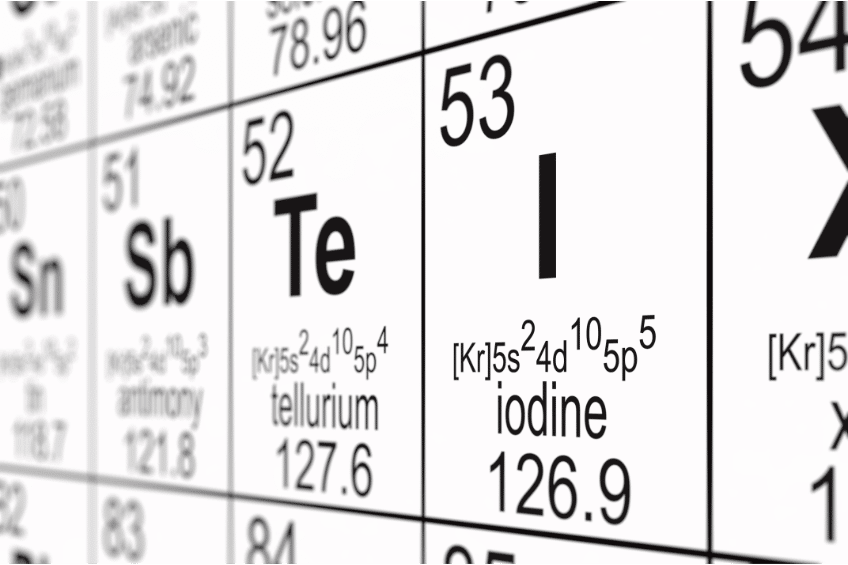Overview
Iodine is a mineral that is essential to life. It is involved in the functioning of the thyroid and the synthesis of thyroid hormones necessary for the regulation of metabolism, which means the functioning of cells and organs. These hormones affect metabolism, the nervous system and the regulation of energy in general. Iodine is also involved in the maintenance of cognitive function, as well as the good condition of the skin.
Sources of iodine include sea fish, shellfish, milk and dairy products. I can also be found in plant foods, such as cereals and grains.
Iodine deficiency can be the cause of mental anomalies and psychomotor disorders. In fact, insufficient iodine intake can lead to the development of a goiter (increased volume of the thyroid gland) and to severe or delayed alterations in the child’s psycho-neuro-intellectual development. Even a mild iodine deficiency before pregnancy can have a strong effect on the development of the fetal thyroid and irreversibly affect its neurological development.

10 Symptoms and Signs of Iodine Deficiency
1. Quick and Sudden Weight Gain
Thyroid hormones regulate the body’s metabolic energy and influence much of the body’s energy expenditure.
Iodine deficiency can cause a disruption of the thyroid hormone synthesis process and a decrease in its activity. Therefore, the metabolism will be slowed down and you will have difficulty burning calories. This will lead to weight gain, even with a healthy diet.
Also, patients may experience strong fatigue and a decrease in their physical activity. Depression, worry and anxiety can lead to overeating and mindless snacking, which also leads to weight gain.
In addition, excess weight can be a consequence of edema. It is usually caused by water retention related to metabolic disorders. The connective tissue becomes more receptive to fluids and, in addition to excess weight, iodine deficiency manifests itself by the thickening of the skin, puffiness of the face and limbs, and swelling of the tongue and lips.
